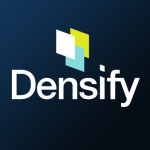I think for me the most valuable feature is really capacity planning; knowing that I'm using our resources efficiently. We're going through a large hyperconversion project here and we really want to make sure that we are sized appropriately, so that we can build our next solution correctly. You know, save money and utilize hard work the most efficient way.
It has helped speed up performance. It's helped us size our environment appropriately, so that the servers that need the resources can get them. So we're not over-subscribing some and under-subscribing others.
I think we've used it to diagnose some things that might have caused trouble down the road, so it's helped us from there.
We haven't really looked at it from the storage standpoint, we're kind of storage strapped at the moment. As we go into hyperconversion, we're actually really going to start to utilize the tool to come up with a better sizing for that.
It's helped me and the IT department get a better idea of what's going on in the environment. Health checks make sure everything is running the most efficient way possible. It helps us plan for growth, to make sure we're getting the best return for our investment in the underlying hardware.
It’s really stable; haven't had any issues with it.
We're not a gigantic organization so, for us, there's no problem with scalability.
I’ve used technical support some; just to start to get to learn it and get it installed. It's an ongoing learning process for me. It's good. I think it's one of those things you have to take the time and learn it. We're gradually learning it over time.
We decided to invest in this solution because we were so heavily invested in virtualization, and just simply monitoring the virtual machines wasn't enough. We needed a full picture of the environment from the host all the way up through. It gives us a great complete picture.
We did not look at any other vendors at the time. This is the only one we looked at.
I was involved in the initial setup. It was very easy, straightforward to install, get running and start getting data.
I like that it's a single pane of glass with a single vendor, with a supportive VMware. It's really easy; it plugs in easy. There’s less to manage because it's all done through the center.
Support is an important criteria for us when selecting a vendor, as well as stability. That's why we like to partner with VMware, because the support is excellent and the stability is second to none.
A lot of my rating is a reflection of me not knowing the product. As I learn more and more, it becomes more valuable to me. I'd say it's not an everyday staple in our environment now, but it's becoming more and more important.











